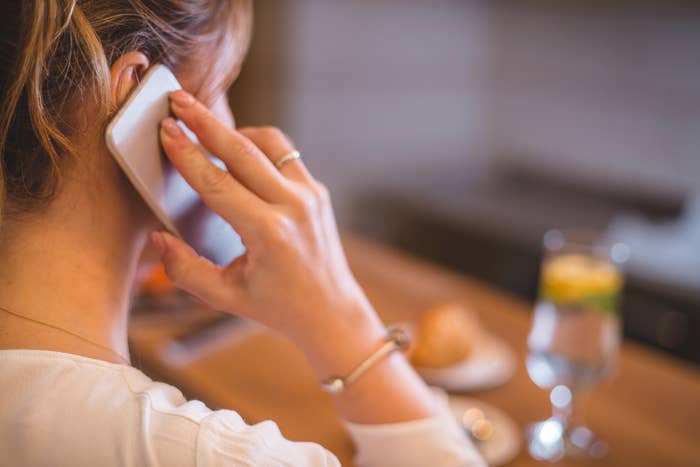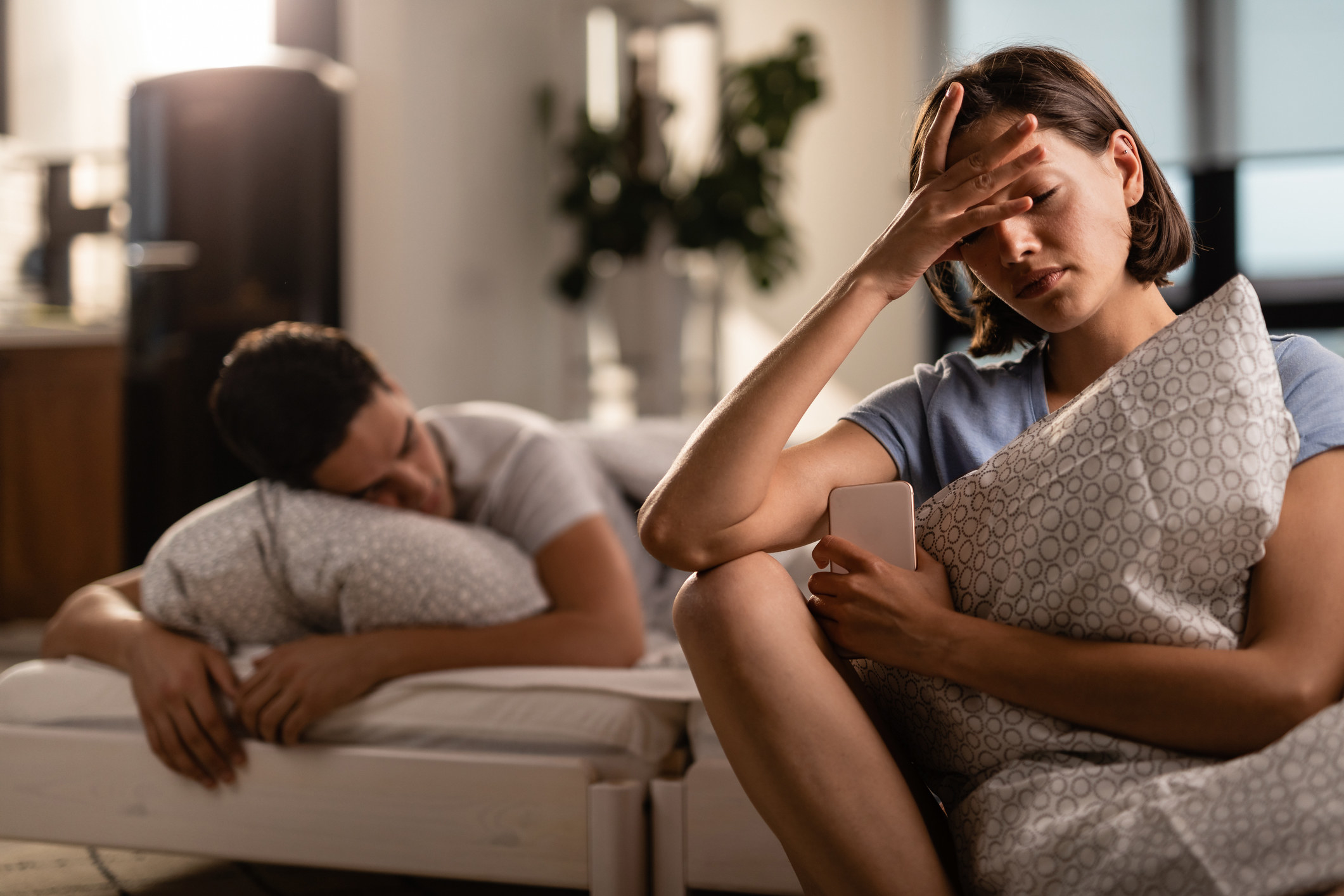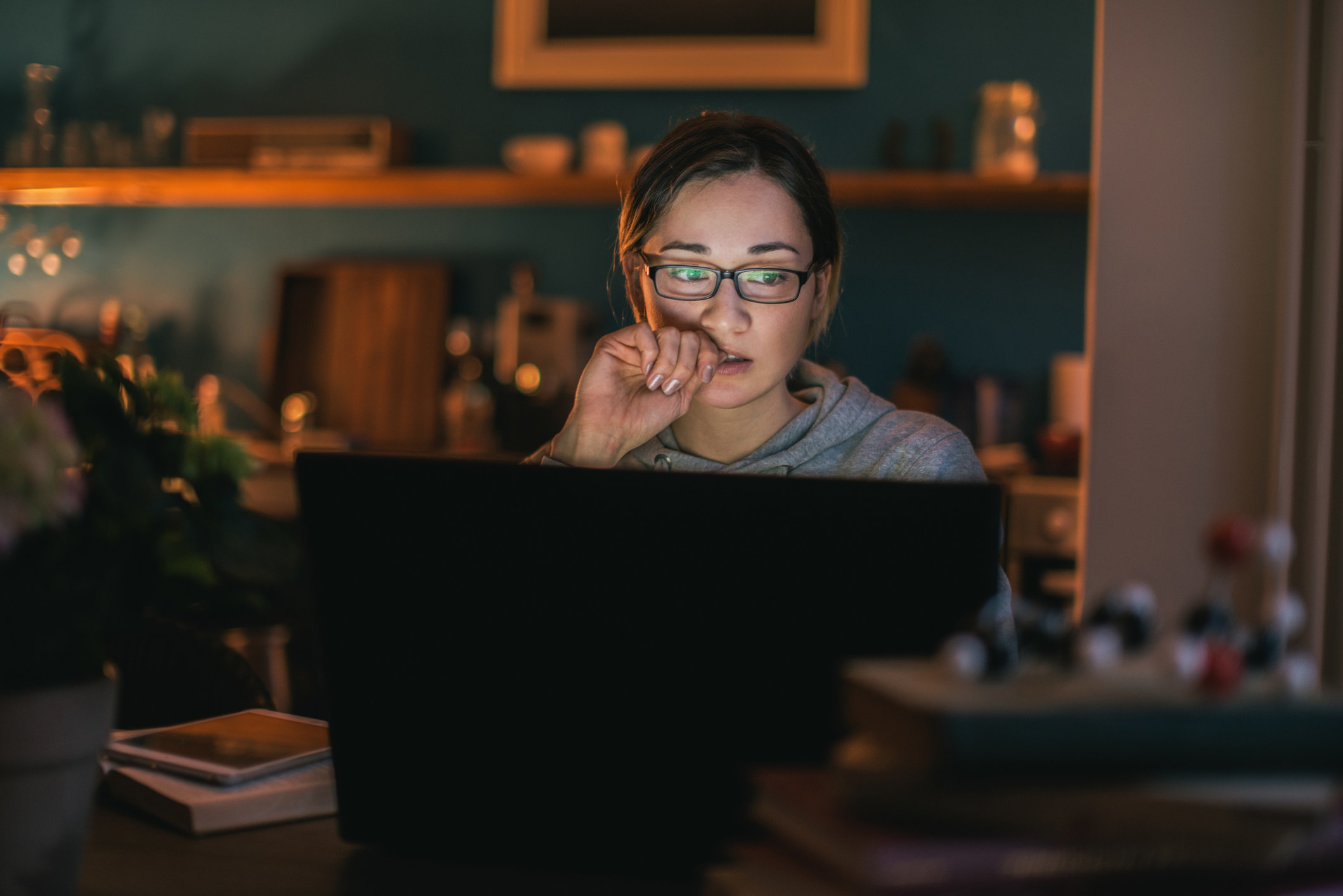
There has been an uptick in women accessing family violence services since the coronavirus outbreak began, and perpetrators are using the pandemic as an “excuse” for violent and coercive behaviour, according to frontline workers in the Australian sector.
On Sunday, Australian prime minister Scott Morrison said there had been a 75% increase in Google searches related to domestic violence in recent days, before he announced $150 million in extra funding to support counselling providers, men’s behaviour change programs, housing services and a “public communication campaign” so people know where they can seek help.
Women’s Safety NSW chief executive Hayley Foster said women experiencing violence are saying “time and time again” that it is related to the current pandemic.
“Even though there were underlying issues, even though the violence was not driven by COVID-19 and there was existing abuse, what we are seeing is the crisis and the stressors related to it are being used as an excuse,” Foster told BuzzFeed News.
“[Perpetrators] are saying things like ‘why haven’t you got toilet paper?’, ‘why haven’t you got my favourite pasta?’, ‘why are you not keeping the kids quiet?’, ‘I need peace and quiet’, ‘you need to have the kids home, I don’t want them picking [the new coronavirus] up’.”
Financial stress and fear of job losses is making women “very protective” of their partners, she added. “Women are using excuses like saying ‘he’s never hit me before, he’s just really stressed because his hours are going down and he doesn’t know if he’s going to have his work’.”
More than 40% of frontline workers surveyed by Women’s Safety NSW said there had already been an increase in client numbers since the outbreak of COVID-19.
Foster said there was a need for “safe phones and safe SIMS” right now. The Federal government is not renewing funding after June 30 this year to a major safe phone provider. The most recent funding announcement does not reverse this cut.
“A partner who is using violence and abuse can often use controlling behaviours such as surveillance, monitoring and tracking of their partner or ex-partner just with technologies on mobile phones and being able to track and listen to phone calls and messages,” she said. “What we find is the only way some women can access services and support agencies is if we provide them with an alternative phone.”
Domestic Violence Victoria acting chief executive Alison Macdonald agreed women are at risk of surveillance, and that isolation is a risk factor in family violence.
“[Isolation] is a tactic that perpetrators use to enable them to control and surveil their family members and we’re particularly worried about what that will mean for people in abusive relationships who might become more isolated from friends and family,” Macdonald told BuzzFeed News.
She said the evidence, both in Australia and internationally, shows an increase in the “onset, frequency and severity” of family violence in the wake of disasters and emergencies.
“We know it from the bushfires and floods here, we know it from the Christchurch earthquake and we know it from the hurricanes in the United States,”she said.

As well, the recent horrific, high profile murder of Hannah Clarke and her children had driven a clear increase in demand for services. It generated the highest number of calls and website queries to family violence hotline 1800RESPECT recorded in any one day.
Macdonald said emergency situations “show up where the really big pressure points” are in the system, and that the sector was preparing as best it could for the coming months. But it is a highly gendered workforce and there are “a lot of women affected by having kids at home” as schools close across the state.
“There will probably be a move to online and phone-based support but we want to send a strong message to the community that these services are still here,” she said.
Figures released last week show one family violence victim is killed or is the target of an attempted murder every fortnight in Victoria. One frontline worker told the ABC she had received six reports in one week of men using the new coronavirus to threaten and coerce women by lying about visitors, or themselves, having COVID-19.
Macdonald said there was evidence during disaster periods that people reverted to more “rigid gender norms”.
“So there can be a lot of pressure on men, for example, to provide for their families and for women to just shut up and put up with it,” she said. “Those kinds of very gendered understandings of how we react and we respond to emergency situations can really be exacerbated and heightened and that in itself creates the underlying conditions that enable violence against women to continue.”
Monash University’s Gender and Family Violence Prevention Centre acting director Dr Kate Fitz-Gibbon said the pandemic could “exacerbate” abusive situations and help spawn new ones.
“[Abuse] might take new forms as well, so relationships where there has been coercive control previously, that might not be as present when the abuser can control everything in his partner’s life now, but it might be that physical abuse or financial abuse steps in,” Fitz-Gibbon told BuzzFeed News
She said there was a dearth of research into the impact of an event like this in Australia.
“All we can really know is that during a global crisis and natural disasters we know that family violence increases,” she said. “The closest thing I’ve seen this compared to is the [1918 flu pandemic] and we didn’t have a specialist family violence sector then.”
Uncertainty is everywhere: how will women and children be able to access safe housing? Will there be available nurses to support new parents in the crucial first few months, where partner violence can emerge for the first time?
Services to support men using violent and controlling behaviour needed to be available at this time, she said.
“We’re going to have a group of men that haven’t been abusive in relationships before that are under increasing anxiety and stress and we need to have a system that can support those men,” she said. “We can’t expect them to work through it themselves.”
West Connect Domestic Violence Services manager Catherine Gander told BuzzFeed News: “While home is undoubtedly the safest place to avoid the coronavirus, it is not the safest place for a woman and child experiencing family and domestic violence.”
So how, and where, are people — both those at risk of violence, and perpetrators — supposed to find support right now?
Gander said women should try to develop a safety action plan, and that it was important for friends and family, who “often know when there is domestic violence”, to check in and let people know services were still on offer.

“If people have concerns about anybody they should call the police,” she said. “People can’t stand back at a time like this because of social isolation, and as a community we need to step up and have our ears and eyes out.”
Gander said she has had to rethink how to continue to deliver services and keep staff and clients protected from the virus.
“We have stopped face-to-face support and replaced that with phone or video support,” she said. “We have four refuges and three of them are group living, so we can’t have as many families as we normally would so they can achieve social distancing, and we have two properties set aside so that if someone contracts COVID-19 there’s somewhere to go and self-isolate.”
Australia’s national sexual assault, domestic and family violence counselling and information referral service, 1800 RESPECT, is available 24 hours a day, every day of the year, even during a pandemic. A portion of the new funding announced by the government will help ensure the service can operate through the outbreak.
Melonie Sheehan is the national program manager for 1800 RESPECT and said if someone doesn’t feel safe to call the service over the phone, they can speak to counsellors via webchat through the organisation's website.
“However, it’s important to know that 1800RESPECT counsellors are experienced in how to sensitively handle contacts from those impacted by domestic violence, who are in the same house as the person using violence,” she said.
She encouraged those impacted by violence to download the safety apps Daisy, which can connect people to services in their areas, and Sunny, which provides support for women with disability who have experienced violence and abuse.
“We understand there will be many pressures as a result of the COVID-19 health emergency,” Sheehan said. “However, there is never an excuse for violence.”
For help or information on domestic violence, visit 1800RESPECT or call them on 1800 737 732. The Men’s Referral Service is aimed at men who need help to stop violent or controlling behaviour, but it also supports victims and families. You can call on 1300 766 491.

